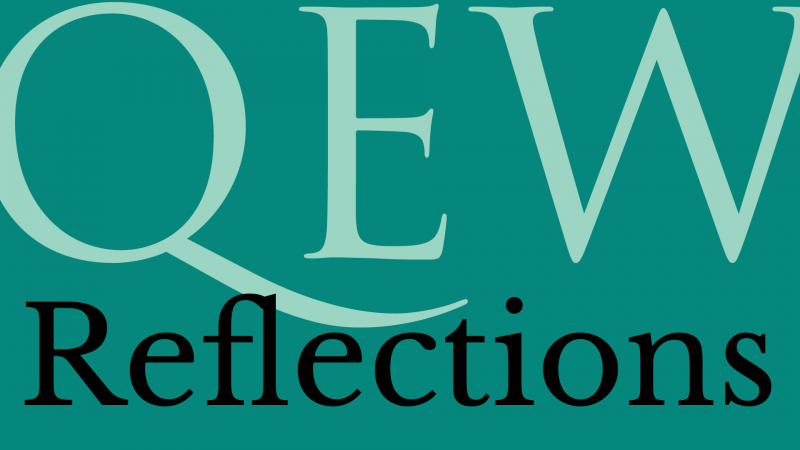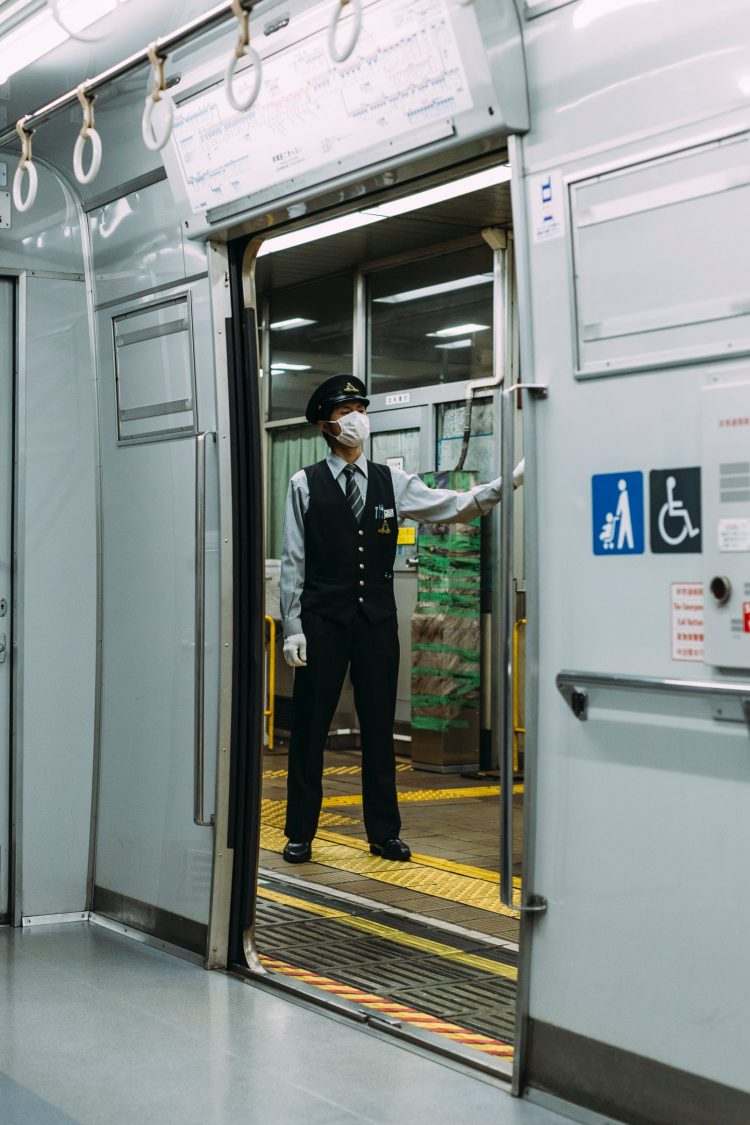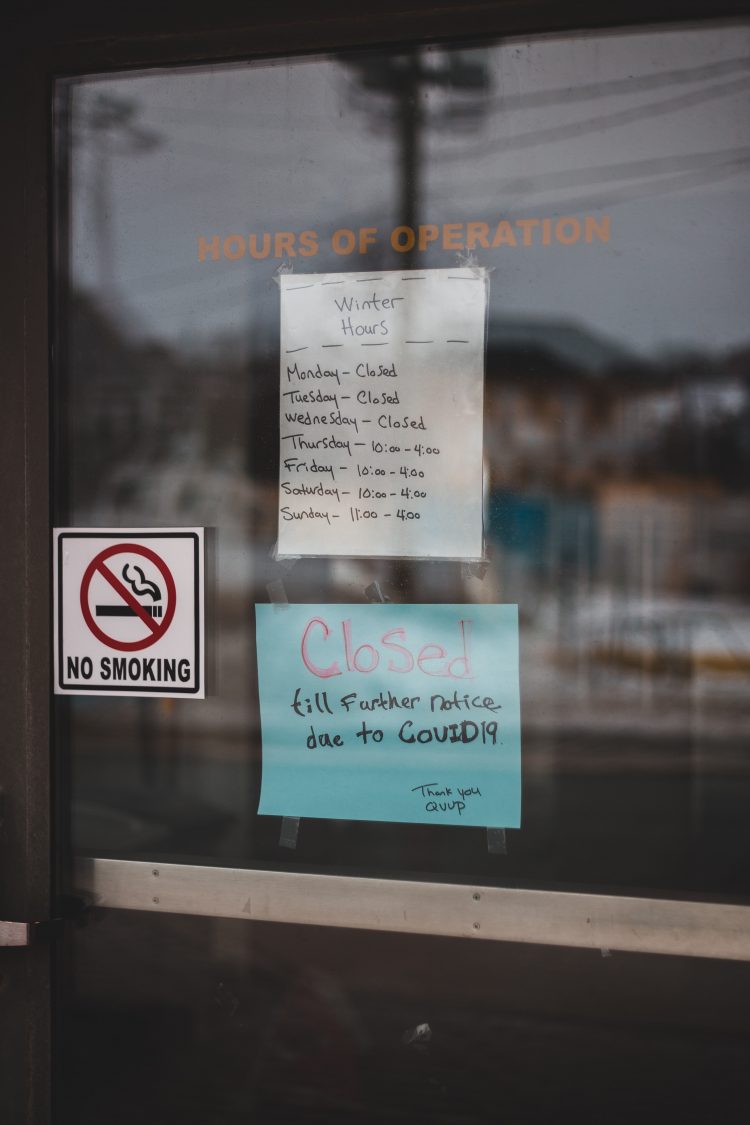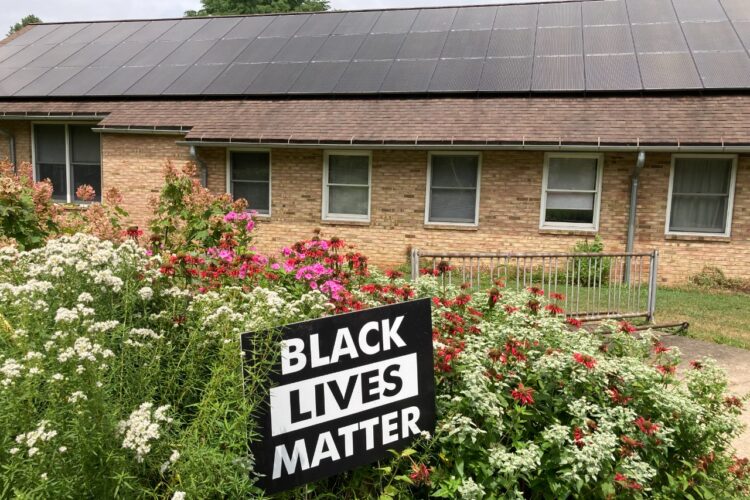What I’m Learning From the Pandemic

By Shelley Tanenbaum.
EVERY YEAR WE Friends ask ourselves, “How has truth fared for Thee?” It is a way of refreshing ourselves, of self-evaluating personally and in our Meetings. It gives us an opportunity to change course and to respond to emerging leadings. What if we see the coronavirus pandemic as an opportunity to change course, to respond to global and local emerging leadings? What are we called to do in this time of a pandemic crisis, and how does that relate to the multiple ecological crises humanity is facing?
There are some clear parallels between the pandemic and longer-term crises such as climate change, crashing biodiversity, depleted soils, and dying oceans. First, slow response to both the pandemic and ecological crises only leads to a worse outcome. The US and South Korea both had their first cases of Covid-19 on the same day, yet the outcomes have been radically different. South Korea brought the number of cases and deaths down to a crawl through extreme measures of testing, social distancing, and changing business as usual. The response has been much slower in the United States, with exponential disease rates wherever the disease has hit. Some states such as California imposed stringent public health controls and at least as of this writing, have managed to dramatically slow the rate of disease.
Both the pandemic and climate change require major shifts in business as usual (I’m going to compare the response to Covid-19 with climate change, but any of our ecological crises would follow the same comparisons). Most individuals and most governments understand that to dampen the rate of infection—“flattening the curve”—we all had to change almost everything we do in day-to-day life. This meant no more gatherings, working from home when possible and shutting down business/shops if they weren’t related to basic needs such as food and health, closing schools, and moving to online classes as much as possible, taking extreme precautions such as wearing masks in public, washing hands obsessively, and cleaning and/or quarantining any items that are entering our homes. The South Korean example shows us that these extreme measures can work. But Covid-19 is like climate change on steroids; without extreme measures, we see sky-rocketing death rates, while with extreme measures we can flatten the curve. With climate change, even though we are seeing rapid change globally in our lifetimes, the change isn’t fast enough for most of us to feel it personally.

The most significant lesson that I am learning from Covid-19 is that we have a profound choice to make in this health crisis Do we live as if we were already part of the Beloved Community and treat each other with loving care, or do we live as if we are isolated fortresses stocking up on supplies and keeping out the invaders? The most important thing most of us can do, especially if we aren’t healthcare workers, is to (ironically) stay away from each other. More than ever, we need to show how much we care for each other, share our resources, and change what has been business as usual.
Here is another lesson I am learning: We can change business as usual if we have the will to do so. How often have we heard the excuse from government officials or industry executives that changing our way of doing business and restructuring our economy to support wellbeing over profit is impossible? Now we know: dramatic overnight changes happened when people understood the immediate threat.
We have also seen the public (most of us) willing to give up so much to benefit a segment of society, those who are most vulnerable. With Covid-19, that means younger and healthier people who have a smaller risk acting to benefit older people and those with pre-existing health problems, who carry greater risk. With climate change, the story is reversed, however. Most older people will not live long enough to directly experience the worst impacts of climate change; younger people will spend the rest of their lives with worse and worse living conditions. Howard Zinn writes,
“To be hopeful in bad times is not just foolishly romantic. It is based on the fact that human history is a history not only of cruelty but also of compassion, sacrifice, courage, kindness. What we choose to emphasize in this complex history will determine our lives. If we see only the worst, it destroys our capacity to do something. If we remember those times and places—and there are so many—where people have behaved magnificently, this gives us the energy to act, and at least the possibility of sending this spinning top of a world in a different direction. And if we do act, in however small away, we don’t have to wait for some grand utopian future. The future is an infinite succession of presents, and to live now as we think human beings should live, in defiance of all that is bad around us, is itself a marvelous victory.”

So, suppose we all learned these lessons and our world started responding to climate change the way most of the world is now responding to Covid-19. It would probably look a lot like the Green New Deal: 100% renewable energy within the next 20-30 years, financial and infrastructure support for those transitioning out of a fossil fuel economy, valuing human (and other species) well-being over the stock market. Suppose we went further, not just to understand, but to embrace our kinship with the natural world. Shocked into change out of fear, the pandemic gave us an important opportunity. We are called to act in these times: to quit denying the scientific facts, act boldly and respond out of love.

